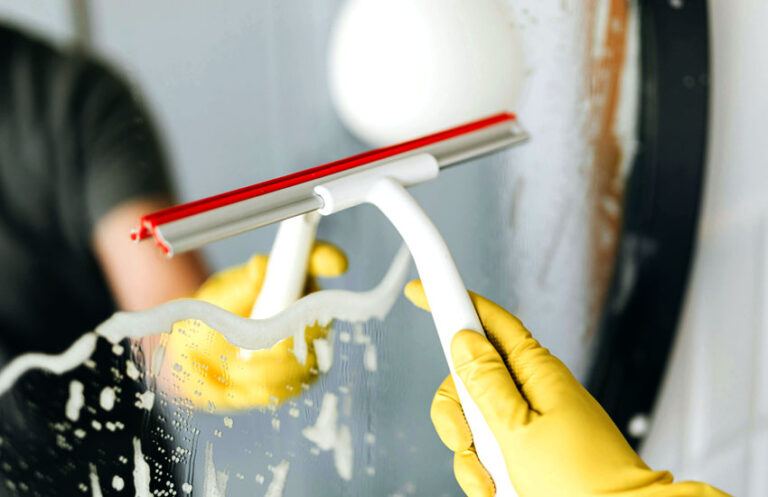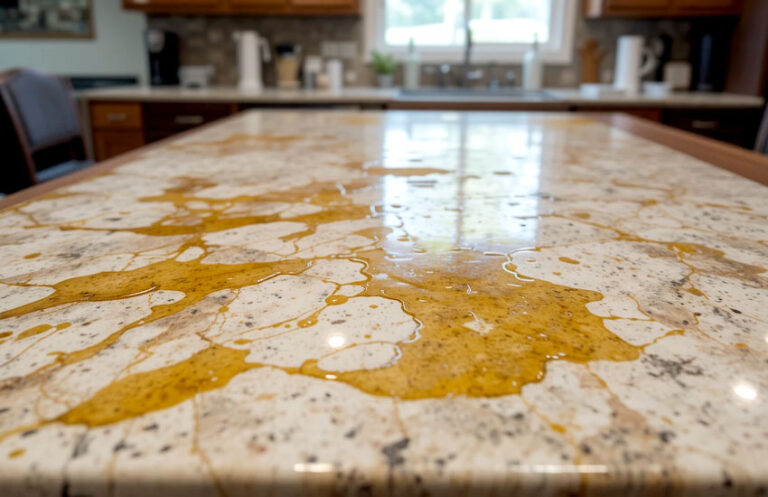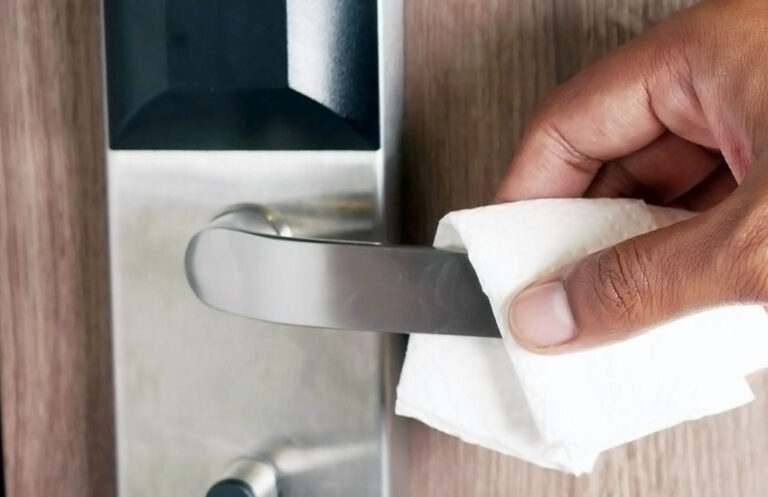As an Amazon Associate, I earn from qualifying purchases at no extra cost to you.
7 Must-Know Tips for Maintaining Your Glass Shower Doors
When it comes to your bathroom, the shower door is one of the most noticeable and important features. Glass shower doors, in particular, can add a touch of elegance and style, making the space look modern and clean. However, while glass doors may seem like low-maintenance options, they require some attention to keep them looking their best.
Over time, glass can accumulate soap scum, hard water stains, and grime, which can cause it to lose its sparkling clarity. But don’t worry! With just a little care and the right tips, you can maintain the beauty and function of your glass shower doors for years to come.
In this article, we’ll explore 7 must-know tips that will help you keep your glass shower doors looking spotless and in excellent condition. Whether you’re dealing with soap scum buildup, water spots, or just general wear and tear, these simple tips will save you time and effort.

1. Clean Your Glass Shower Doors Regularly
The most important step in maintaining your glass shower doors is regular cleaning. It’s easy to overlook this task when you’re rushing to get ready or relaxing in the shower, but it makes a world of difference when it comes to preventing buildup. Water spots, soap scum, and mineral deposits can quickly form if the glass isn’t cleaned on a regular basis.
To start, you should clean your glass shower doors at least once a week. This will prevent soap scum and water stains from setting into the glass, which can be difficult to remove later on. Choose a mild cleaner that is safe for glass, such as a vinegar and water solution or a store-bought glass cleaner. Avoid using harsh chemicals, as these can damage the glass or the metal frames around it.
You’ll also want to use a microfiber cloth or a soft sponge to clean the glass. Microfiber cloths are ideal because they are gentle on the glass and will not scratch it. Always wipe in a circular motion or up and down to cover the entire surface. For hard-to-reach areas or spots, try using a small brush, such as an old toothbrush, to scrub away the buildup.
In addition to regular cleaning, you should also be sure to clean any metal frames or handles on the shower door. These areas can accumulate water, soap, and grime as well. If you have metal components, consider using a non-abrasive cleaner to wipe them down and keep them shiny.
2. Install a Squeegee for Post-Shower Cleaning
After every shower, it’s helpful to use a squeegee to remove excess water from the glass. This quick step can go a long way in maintaining your glass shower doors and preventing the buildup of mineral deposits and water spots. It’s particularly important if you live in an area with hard water, as it can leave behind stubborn stains that are difficult to remove once they’ve dried on the glass.
A squeegee is an affordable and easy-to-use tool that can help you maintain your glass shower doors with minimal effort. Simply run the squeegee over the glass in a downward motion after each shower, wiping away the water droplets. Be sure to also wipe down the squeegee after each use to prevent streaks from forming. This quick routine only takes a few seconds and will keep your glass doors looking clear and fresh.
Additionally, using a squeegee will prevent the growth of mold and mildew on your glass doors. Moisture left behind after a shower can contribute to the development of these unwanted growths, especially in a warm, humid environment like a bathroom. By removing excess moisture after each shower, you’ll help keep the glass free from mold and mildew, which can be difficult to clean once it has taken hold.
3. Use a Water-Repellent Coating
One of the most effective ways to maintain glass shower doors is to apply a water-repellent coating. These coatings work by creating a protective layer on the surface of the glass that makes it more resistant to water, soap scum, and mineral deposits. This can significantly reduce the amount of cleaning you need to do and prevent buildup over time.
Water-repellent coatings, also known as glass treatment products, are available at most home improvement stores. They typically come in spray or liquid form and are easy to apply. Simply clean the glass thoroughly before applying the coating, then follow the instructions on the product for best results.
Once the coating is applied, it will help water and soap slide off the glass, rather than sticking to it and forming stains. This can help keep your glass doors looking cleaner for longer and make cleaning much easier. In addition to improving the appearance of your shower, water-repellent coatings can also protect the glass from the damaging effects of hard water.
While a water-repellent coating is a great preventive measure, it’s important to remember that it doesn’t make your glass immune to cleaning altogether. Regular cleaning is still necessary to keep the glass in optimal condition, but the coating will make the process much easier and less frequent.
4. Prevent Hard Water Stains with Proper Ventilation
Hard water stains are one of the most common and stubborn problems people encounter with glass shower doors. These stains are caused by minerals like calcium and magnesium that are left behind when hard water evaporates. Over time, these stains can form a cloudy or spotted appearance on the glass, making it look dirty and dull.
To prevent hard water stains from forming in the first place, it’s crucial to have proper ventilation in your bathroom. Good ventilation helps to reduce the amount of moisture in the air, which in turn reduces the chances of hard water stains developing on your glass shower doors. The key to preventing these stains is to ensure that the bathroom stays dry after every shower.
You can improve ventilation by using an exhaust fan during and after each shower. This will help to remove excess humidity from the air and speed up the drying process. If you don’t have an exhaust fan, opening a window or leaving the bathroom door open can also help improve airflow.
In addition to using ventilation, you should also consider installing a dehumidifier if you live in a particularly humid climate. Dehumidifiers work by reducing moisture in the air, which can help prevent the buildup of water spots and stains on your glass shower doors. This can be especially useful in bathrooms without windows or limited airflow.
5. Deal with Soap Scum and Grime
Soap scum is another common issue that affects glass shower doors. This stubborn residue forms when soap combines with minerals in the water, leaving behind a cloudy, filmy layer on the surface. Soap scum can build up over time and become difficult to remove if left untreated.
The best way to deal with soap scum is to tackle it before it has a chance to build up. Regular cleaning, as mentioned earlier, will help to keep soap scum at bay. However, if you do notice a buildup, there are a few cleaning methods you can use to get rid of it.
First, you can use a mixture of vinegar and water to clean the glass. The acidity of the vinegar helps to break down the soap scum, making it easier to wipe away. Simply spray the vinegar solution on the glass, let it sit for a few minutes, and then wipe it clean with a microfiber cloth.
If the soap scum is particularly stubborn, you may need to use a more powerful cleaning solution. There are many commercial products available that are specifically designed to break down soap scum. Be sure to follow the manufacturer’s instructions carefully when using these products, and always wear gloves to protect your skin.
Another helpful tip is to use a magic eraser or similar sponge to gently scrub the glass. These sponges are designed to lift soap scum and grime without scratching the surface of the glass. Simply dampen the sponge and use it to scrub away the buildup.
6. Maintain the Seals and Tracks
While it’s easy to focus on cleaning the glass itself, it’s also important to maintain the seals and tracks of your shower doors. The seals around the edges of the doors help to keep water inside the shower, and the tracks are where the doors slide. Over time, these areas can accumulate dirt, grime, and mold, which can affect the performance of your shower door.
To maintain the seals and tracks, start by cleaning them regularly. Use a soft brush or cloth to wipe down the seals, paying close attention to any areas where mold or mildew may be present. You can use a mixture of vinegar and water to clean the seals, as this will help kill any bacteria or mold spores.
Next, inspect the tracks for any debris or dirt that may be stuck inside. Use a small brush or even a vacuum cleaner to remove any dirt or hair that may be collecting in the tracks. If the tracks are difficult to clean, you can try using a cloth soaked in warm, soapy water to wipe them down.
If you notice any damage to the seals or tracks, such as cracks or tears, it’s important to replace them as soon as possible. Worn-out seals can cause water to leak out of the shower, and damaged tracks can affect the smooth sliding of the doors.
7. Protect Against Mold and Mildew Growth
Mold and mildew thrive in damp environments, and your shower is one of the most common places in the home where they can grow. These fungi can cause health problems and damage to your shower doors if left unchecked. To protect against mold and mildew growth, it’s important to keep the bathroom dry and well-ventilated.
In addition to using a squeegee and improving ventilation, you should also consider using a mold-resistant shower cleaner or spray. These products can help to kill mold and mildew spores and prevent future growth. Be sure to use them as part of your regular cleaning routine.
If you notice any mold or mildew starting to form, it’s important to address the issue immediately. You can use a mixture of vinegar and water to kill mold and mildew, or use a commercial mold cleaner specifically designed for bathroom surfaces. Apply the cleaner directly to the affected areas, let it sit for a few minutes, and then scrub with a soft brush or sponge. Rinse thoroughly to remove any remaining residue.
In particularly damp areas, consider using a mold-resistant grout sealer on the grout lines between your tiles. This will help prevent moisture from seeping into the grout and promoting mold growth. Regular maintenance and prompt attention to any signs of mold or mildew will ensure that your glass shower doors remain clear and free from these unsightly growths.
Maintaining your glass shower doors doesn’t have to be a daunting task. By following these 7 tips — cleaning regularly, using a squeegee, applying a water-repellent coating, improving ventilation, dealing with soap scum and grime, maintaining seals and tracks, and protecting against mold — you can keep your shower doors looking beautiful and functioning well for years. The key is consistency, and a few simple habits can go a long way in keeping your bathroom looking fresh and your glass shower doors in great condition.
I hope you find these tips useful and that they help you keep your glass shower doors looking like new. With just a little effort and routine care, your glass shower doors will continue to shine, creating a beautiful and functional bathroom space for you and your family to enjoy.
Are These Questions in Your Mind?
Is it necessary to clean glass shower doors every day?
It’s not necessary to clean your glass shower doors every day, but it’s a good practice to wipe them down after each shower. A quick use of a squeegee or microfiber cloth can help prevent water spots and soap scum buildup, making it easier to clean them later.
Can I use regular glass cleaner on my shower doors?
Yes, you can use regular glass cleaner, but it’s important to avoid cleaners that contain harsh chemicals or abrasives. These could damage the glass or the seals. Opt for a cleaner designed for bathrooms or a homemade solution like vinegar and water for safer, more effective cleaning.
Do I need to remove hard water stains immediately?
While it’s best to address hard water stains as soon as possible, they can be removed even if left for some time. However, the longer you wait, the more difficult it becomes to clean them. Regular cleaning helps prevent stubborn stains from setting.
Is there a special product for removing soap scum?
Yes, there are many commercial products designed specifically for removing soap scum from glass surfaces. If you don’t want to use harsh chemicals, a mixture of vinegar and water is a natural and effective solution.
Can mold and mildew be prevented on glass shower doors?
Mold and mildew can be prevented with proper ventilation and regular cleaning. Using a squeegee to remove water and ensuring the bathroom is well-ventilated can prevent moisture buildup. If mold does appear, clean it immediately with a mold-resistant cleaner.
Is it safe to use bleach on glass shower doors?
While bleach is effective for removing mold or mildew, it should be used with caution. Bleach can damage the seals and other materials around your glass shower doors. If you use bleach, dilute it with water, wear gloves, and ventilate the room well.
Do I need to apply a protective coating every few months?
Protective coatings, like water-repellent treatments, can last anywhere from a few months to a year depending on the brand and usage. Follow the manufacturer’s guidelines for reapplication, and make sure to clean the glass thoroughly before applying a new coat.
Can I replace the seals on my own?
Yes, replacing the seals on your glass shower doors can often be done on your own. You can purchase replacement seals at a hardware store. Make sure to choose the correct type for your door model and follow the instructions for installation.
Is there any way to prevent foggy glass shower doors?
To prevent foggy glass, ensure that your bathroom is well-ventilated. Using an exhaust fan or opening a window after a shower can help reduce the buildup of humidity, which causes fog. Anti-fog sprays can also be applied to glass doors to minimize this effect.
Can I clean my glass shower doors with baking soda?
Baking soda is a great natural cleaner that can help remove soap scum and stains. Make a paste with baking soda and water, apply it to the glass, and let it sit for a few minutes. Scrub with a soft cloth or sponge, and then rinse thoroughly.





